Spain News Media
-

INTERVIEW WITH PRESIDENT JEAN-CLAUDE JUNCKER
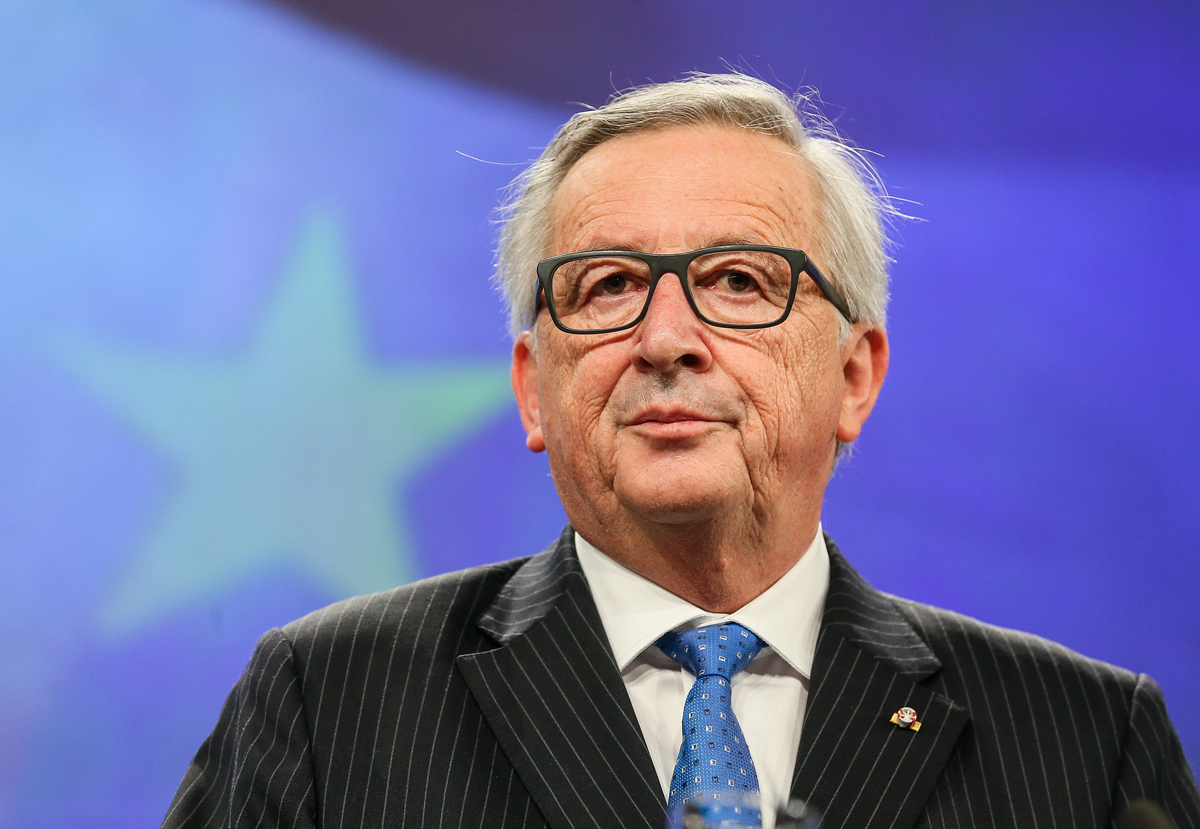
It is no surprise to anyone in Spain at the moment that Jean-Claude Juncker's new cabinet is willing to achieve the association of the word «effectivity» with them. On a interview to ITV News, the newly elected Spanish President has outlined some of his compromises for the next three years and unfolded what his first 100 days in power could look like:
J: President Juncker, a very good evening. Thank you for attending this interview live from Londres.
JCJ: Good evening and thank you for your invitation, it is a huge pleasure to be here today.
J: Firstly, and as a television based in the pre-autonomous community of Londres, I would like to ask you about our Statute of Autonomy. Will Londres have one of these in the forseeable future?
JCJ: That is a nice question on which I am unable to give you exact answers. Currently, the Spanish Government and the recently elected English President are discussing these matters, as we believe it is important to make important advances on the integration of the non-core Spanish autonomies into our constitutional order. There is significant delay and, of course, Londres is not the only region asking for faster progress; but we expect to have the Chart ready for the end of the year, and a referendum would follow suit.
J: However, it is one of the most important regions that is requesting the Statute. Could this mean that efforts would be focused in London and other relevant regions?
JCJ: Absolutely not. During my inauguration session, in which MPs needed to decide whether if they wanted me as President or not, I promised not to give preference to a region over the others. I am German, I was the Chancellor of Germanium, but that does not mean I will give preference to Germanium. Everyone will have the same attention, from Londres to the Spanish Micronesia.
J: Mr. Juncker, I want to discuss foreign affairs. It is widely known that our nation has some tense relationships like the ones with Yosai, the United Duchies or Reitzmag. Is anything going to change concerning these? Some members of the Partido Socialista accused the former Government of "reckless ignorance" towards UD, for example. Is this true?
JCJ: I do not think we should speak of changes when you have mentioned two out of the Four Horsemen of the Apocalypse in the European Union, and I should say that Reitzmag is not one of them. Spain has a nice relationship with Reitzmag, there was a summit in my home town and there should be another soon if they are willing to, which I have no doubts about. But at the moment, we have nothing to talk about with Yosai or the United Duchies. The first believes we are pirates, and the latter imposed tariffs on our products not so long ago, tariffs that have, of course, been introduced on their products at a 15%, in return from their 10% tariffs on us and the 50% tariff on Inimicus and North Diessen, two of our allies. There is no "reckless ignorance", that is completely false; there is however no need to talk to, and let me insist on this, two out of the Four Horsemen of the Apocalypse.
J: Who are the other Two Horsemen of the Apocalypse, Mr. Juncker? And what about other European nations? Don't you think that these words differ from the ones that you used to say when you had a European position?
JCJ: You do not want to know. (Juncker laughs) Before I speak about other European nations, let me do a slight remark: when I had a European position I had to be completely neutral, and I always were. Now I am in a different position, and therefore I am entitled to my views but also to the views of the nation, and the Spanish Government policy was clear: «we have nothing to speak about with them». Period. About other European nations, they are welcome to visit Madrid whenever they want, we have lots of things to speak with them and I hope that we can arrange summits with them as soon as possible.
J: Going back to Home Affairs, many are speaking about what your first hundred days in the Government will be like. Could you give us some hints or unfold some proposals?
JCJ: I can guarantee they are going to be effective, as Spaniards might already be seeing. Next week we will be introducing some amendments to our green plan; and during these 100 days we want to pass the Spanish budget, improve our economy, increase the number of active police officers, pass new plans for the nation's biggest airports and, of course, pass some reforms that are needed and that were on the programme of the Partido Popular.
J: We have nearly ran out of time, Mr. Juncker, but there is still time for one more question, and this is about Catalonia, the Basque Country and Scotland. Will nationalists be a risk to your Government stability?
JCJ: Absolutely not. I am lucky to have an absolute majority on both chambers thanks to my dear friend former President Aguilar and they will not condition the legislative activity of this cabinet. Scotland still needs a Statute of Autonomy that we are negotiating and that will be ambitious; and the Basque Country and Catalonia are invited to raise up their concerns to me whenever they want to. Obviously, we are looking for some improvements to their autonomy, but without any discrimination to other regions.
J: Mr. Juncker, thank you very much for this interview.
JCJ: Thank you.
-

GSSA TO INTRODUCE NEW TAXATION SYSTEM NEXT WEEK

The Port of Gibraltar, where the Gibraltar Strait Security Agency's office in Spain is locatedThe new Gibraltar Strair Security Agency is beginning to explore new solutions for the Strait of Gibraltar after the entrance of Hellas into the Treaty. A meeting between the Spanish and Hellenic Directors has been programmed this week, in order to define and approve a new taxation system that would be tested with certain European nations, in order to achieve "higher revenue" than the one the Agency actually earns from traffic crossing into and out of the Mediterranean Sea.
Albert Issola, the Spanish Director of the GSSA, has unveiled these plans alongside the Spanish Minister of Industry, Trade, Tourism and Energy, Jennifer Granholm, who has applauded the initiative from the Agency to "update its taxation system": «we have detected companies from countries that should pay for using the Strait are sending their products in and out for free, and it is time to act», said the Minister; to whose words Issola added some remarks: «the new taxation system will be more effective as companies sending those products in and out will have to pay for crossing through the Strait, and we will be able to professionalise, even more, the Strait of Gibraltar».
Asked about the Hellenic position concerning these changes, Issola has ruled out any possible discrepances: «our Hellenic friends have already agreed to these changes and in our monthly summit we will approve them and make them be in place». Nevertheless, when inquired about the countries that would test the system, Issola claimed he "could not say any names" but he affirmed the GSSA was not "changing anyone's from Group 0 to the new formula": «our allies can be sure we will not make their ships pay, we will make the companies that use their ships to enter for free even if they should pay the tax pay».
Minister Granholm was also asked about the recently introduced tariffs to the United Duchies and the statements published by their institutional representatives: «it seems someone has begun ranting about it. The Spanish Government is not concerned about our decisions and keeps the current route plan as it was». On the other hand, VOX has criticised the efforts of the cabinet to "add extra difficulties to Spanish foreign relationships", calling for an "immediate summit" between Spain and the Duchies. However, it seems clear to many that is ages away from happening.
-

THE GOVERNMENT ADVANCES IN THE INTEGRATION OF PRE-AUTONOMIC STATES
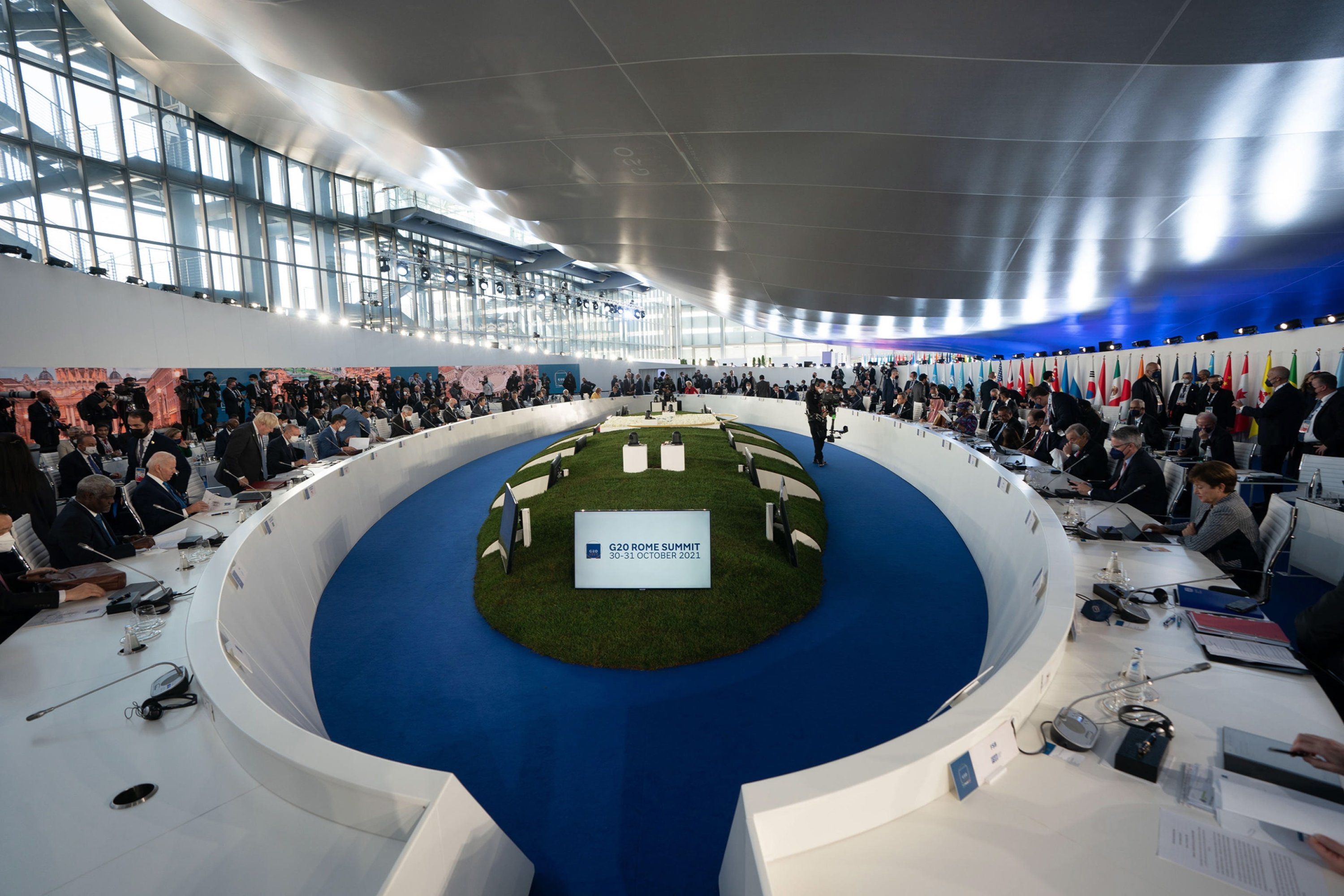
A picture previous to the Commonwealth-Pre-Autonomic States- Government Summit that has taken place in Roma (Grequia)While there is no Statute of Autonomy, and therefore, not full devolution, the Spanish Government has finally made a move towards the integration of pre-autonomic States and the Commonwealth Territories, that still lack of formal regulations and that governate themselves in a way that should have lasted for around 10 years. But more than thirty years after that date, the territories still await their much wished devolution. Nevertheless, they might finally be seeing the light at the end of the tunnel.
The Vicepresident of the Spanish Government, Alberto Núñez Feijóo, has met with the leaders of the Spanish Commonwealth and the Presidents of the territories with no devolution, the pre-autonomic states, in Roma (Grequia). The summit, which has come to an end a few minutes ago, has been fructiferous, according to the National Government and the host of this summit, the recently elected Grequian President Mario Draghi. In fact, an agreement has been signed between the territories concerning police forces, in which only Commonwealth territories and Puerto Rico will get special police forces just like the ones in Catalonia or the Basque Country.
Scotland has been the only region disappointed with the agreement, as pro-independence First Minister Humza Yousaf has expressed live to BBC Alba: «Scotland is not pleased with the agreement, as it does not allow us to have our own police forces. However, I believe that will have to be negotiated once we manage to get our long-awaited Statute of Autonomy». In the other hands, and in an exclusive interview to this journal, the President of the Spanish Micronesia has applauded the decision taken by the Spanish Government: «this will allow us, Micronesians, to handle our affairs between us and not be reliant on Spanish officers that might not want to live here». Nonetheless, the Guardia Civil and Policía Nacional will still operate in those territories where they are not the main Police force.
Alberto Núñez Feijóo has described the agreement as "historical", while applauding the "regions determination to achieve a better Spain": «I have been able to see that there is will to pursue the Statutes of Autonomy and I hope that some of them are finished by the end of the year». The Spanish Vicepresident has also been asked by the recent statement from the Premier Commissioner, to which he has answered on behalf of the Government and President Juncker: «the Premier Commissioner can be sure about the Spanish willingness for peace in the Mediterranean. The trouble was made by Yosai, and we want Yosai to comply with European and Hispanic-Hellenic laws in the area. Europe now knows who is the incendiary nation, and more importantly, who they must be careful with when calling them allies. Spain will never stop complying with EU laws, at the same time it enforces its own legislation or shared legislation with our Hellenic neighbours».
-
FIRST MINISTER YOUSAF SAYS THEY "WILL NOT BACK DOWN ON LAW AND ORDER" AND ASKS JUNCKER TO REFORM THE CONSTITUTION
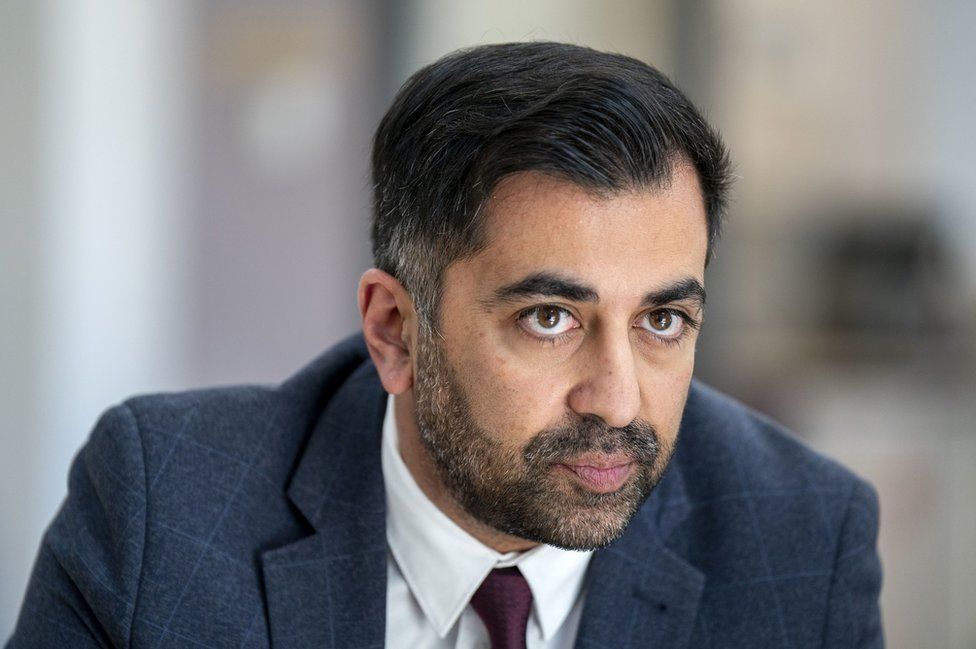
The Scottish First Minister Humza Yousaf, visiting the Scottish Emergency Headquarters«Scotland is not backing down on our request to handle law and order». That has been the answer of the Scottish First Minister, Humza Yousaf, when asked by the chances that Scotland gave up the topic in order to finally achieve an agreement with the Spanish Government and being able to become the first pre-autonomic state to get the polls out and have the Scottish people vote on a new Statute of Autonomy for Scotland, after more than 40 years spent on a limbo of laws and concessions from Madrid that have never fit the feelings and sentiments of the Scottish people.
On the streets, the Scottish citizens are divided over the issue. Cameron, a devoted nationalist, has applauded the stance of the First Minister: «We have been disrespected by the Spanish Government since 1978, and we were disrespected by them last Tuesday when they forced our Government to give up on the possibility of having our own police force. They must choose between one another» he said. His views are equal to those shared by the Scottish Government. In addition, the Scottish Greens, the allies of the SNP in the regional government, have already announced that when the referendum comes, they will "defend the No choice" as that would allegedly send a message of "independence willingness" to the Spanish Government.
Meanwhile, the Government in Madrid is still confident about achieving an agreement with the Scottish First Minister. Sources from Moncloa have confirmed they will not back down either, as the Spanish Government "shall reach agreements within the Consitution". Vicepresident Alberto Núñez Feijóo ruled out any Constitutional reform, as he defended that Scotland "could not be an exemption" due to the consequences that would have on other autonomies, referring to pro-independence Catalonia and the nationalist Basque Governments. Scottish people expect to vote before the end of the year, and while it seems our long wished independence is further away; we still fight for unique matters that we want to be devolved to us.
-

SPAIN TO REACH THE MOON BY LATE 2025 OR EARLY 2026
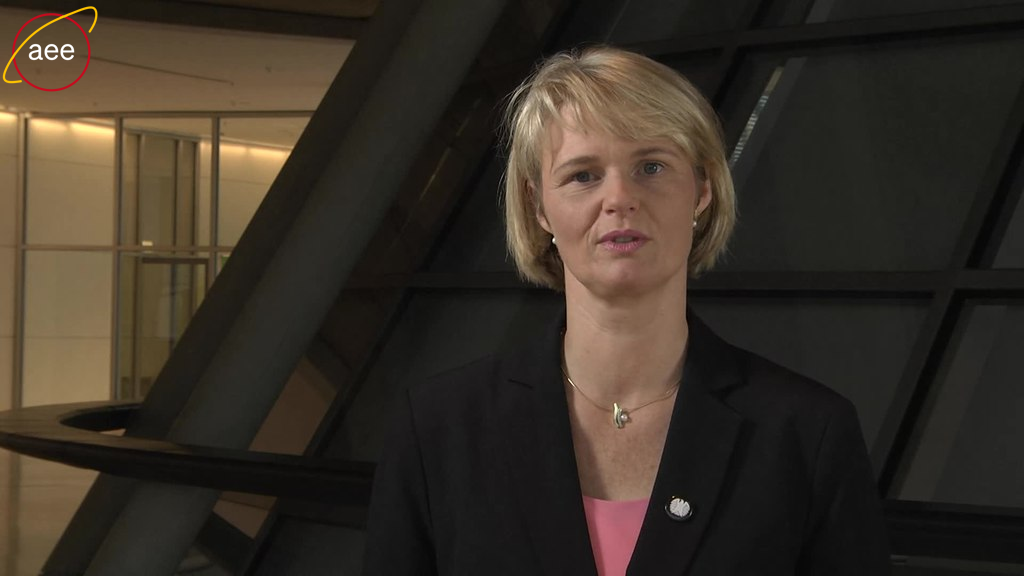
Science, Innovation and Research Minister Anja Karliczek, in a televised address to AEE employeesWe finally have a date to mark on our calendar, and it is sooner than expected. In a televised address to employees of the Agencia Espacial Española or, in English, Spanish Space Agency; Science, Innovation and Research Minister Anja Karliczek has announced the approximate time range within which Spain will aim to make it to the Moon. The news come after the recent inauguration, at the beginning of the year, of a second Caribbean spaceport, located in the Kingdom of Sertia, which was pretty much welcome by the residents of the friendly Caribbean nation.
In her speech, Kaliczek remarked the great effort made by the employees of the Agencia Espacial Española: «Since the opening of our first spaceport in Nofoaga, the Spanish Government and, later on, the Agencia Espacial Española employees have been working hard on a mission to the Moon that could make us the first nation in the 21st century to get there. It is time to applaud the effort you are making in order to achieve such a milestone» she said. The Minister has also described the Caribbean as "a region of opportunities" and has thanked the Nofoagan and Sertian Governments for their cooperation and willingness to host the Spanish spaceports. However, she has not made clear which of them will be the one that would see the take off of the Spanish mission to the Moon.
Minister Karliczek then announced the Spanish Government proposed date: «We have been working on this project since late 2021 and early 2021, and you all have worked without a proper deadline. Your motivation was, as many of you told me through your amazing letters, incomplete, as you were not certain about the date your work would be used. This Government and I are changing that right now. Dear employees, Spain will get to the Moon in late 2025 or early 2026». After the announcement, a huge applause was heard on the conference room where the event was taking place. The Minister finished shouting "onwards!", which according to AEE sources, seems to have turned into the motto of the first attempt of Spain to get to the Moon.
The opposition has celebrated the setting of a date, with no criticism over the mission or its purpose. However, Yolanda Díaz, the leader of Sumar, has remarked the "negative impact" the rocket take off would have on the atmosphere, releasing huge amounts of polluting gases. The name of the Spanish crew members has also been released: Sara García and Pablo Fernández. Minister Karliczek has also announced they will invite "Caribbean nations" to have crew members on board to the Moon.
-

HIGH SPEED TRAINS ARRIVE IN ASTURIAS AFTER OPENING OF 25KM TUNNEL
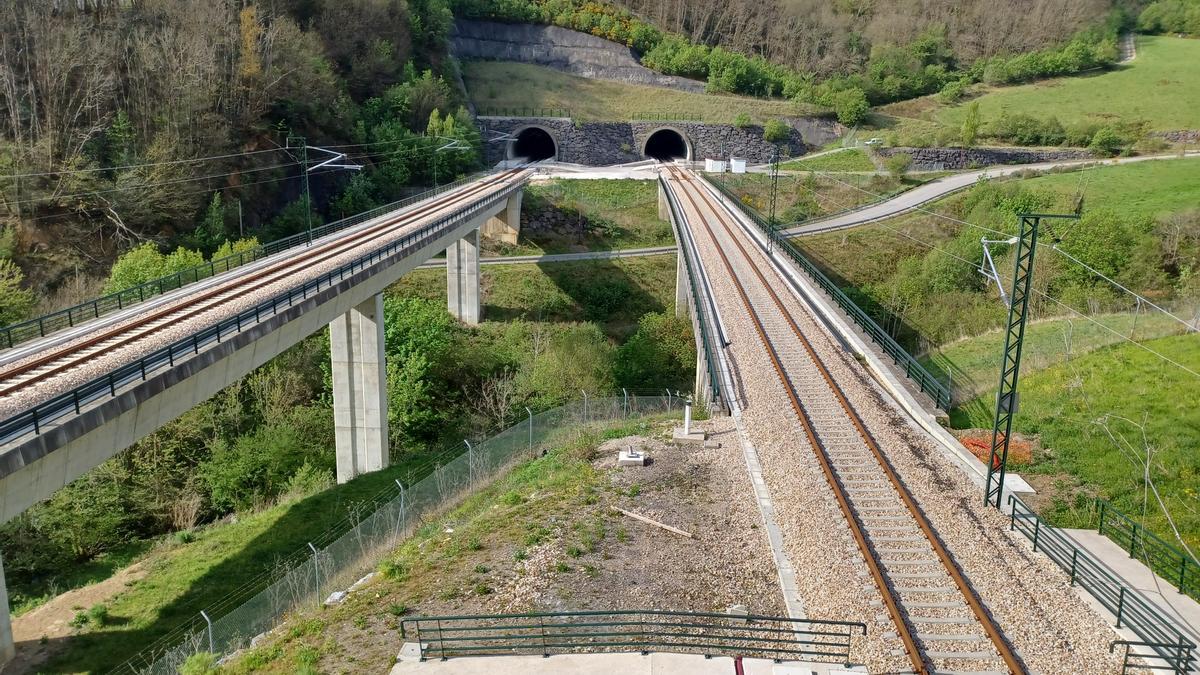
The Variante de Pajares tunnel between Telledo and Pola de Gordón might be the longest in Europe50 kilometres of works, and possibly the longest tunnel of the European Union with 25km of longitude: those are the two main facts about the Pajares Bypass, the newly inaugurated AVE (Alta Velocidad Española, or Spanish High Speed) tracks between León and Asturias, that finally take high speed services to the region. The project is an unprecedented advance that will reduce the journey time for passengers between Asturias and Madrid by more than an hour and will allow freight trains to increase their load by up to 15% and be longer.
Accompanied by Prime Minister Jean-Claude Juncker; the Minister of Transport, Mobility and Urban Agenda, Mariastella Gelmini; and the Presidents of Madrid, Castilla y León and Asturias; his Majesty the King Felipe VI has completed the inaugural journey between Madrid-Chamartín and Oviedo. In total, 12 tunnels and 10 viaducts form part of this 50-kilometre stretch between La Robla and Pola de Lena, built with maximum integration with the environment and biodiversity while making the bypass safe for all. Renfe has already sold 70.000 tickets for the new journeys between Madrid and Oviedo; and it is expected that during its first year of full service, 1,25 million people will travel throughout the Pajares bypass.
On a press event held in Oviedo station, Prime Minister Juncker has remarked the great high speed network the Kingdom has: "our nation has the longest tunnel in Europe, that adds up to the longest high speed network with over 4,000 kilometres of tracks. But we are not stopping here: our network will be longer, we will keep investing and we will take high speed rail to all our dominions. We are already investing 9,000 million EMUs in Cantabria, the Basque Country, Extremadura and Navarra; and during 2024, we will be investing 10,000 more in our preautonomic states".
-

EXCLUSIVE: JUNCKER WANTS TO BE "A TRANSITION PRESIDENT" AND TELLS PARTIDO POPULAR TO SEARCH FOR A REPLACEMENT
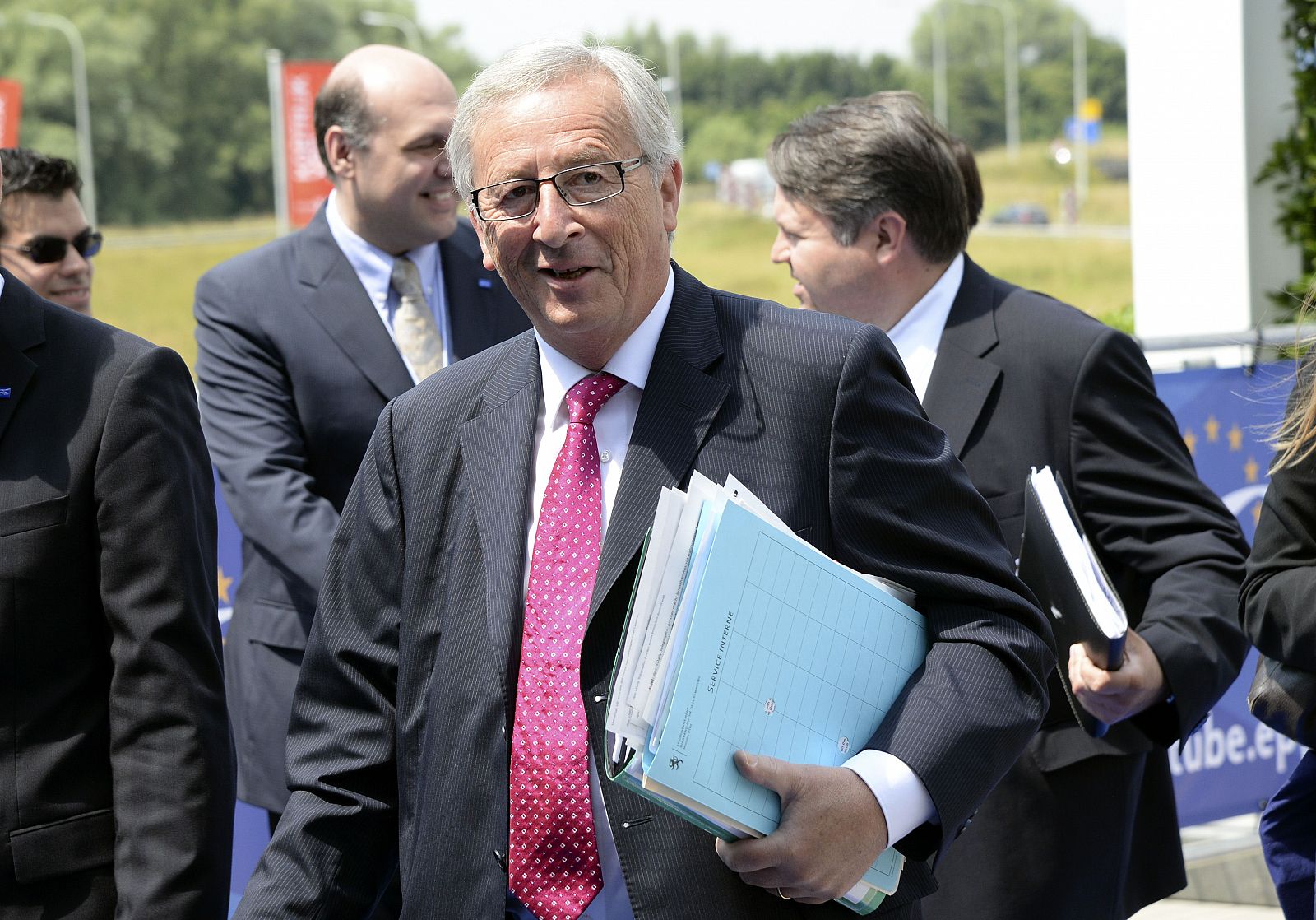
Prime Minister Juncker, on a stock photographJean-Claude Juncker does not want to be the Spanish Prime Minister anymore. In fact, he never wanted: he just ran for the position in order to guarantee a calm transition between the Aguilar era and a new era, that he would not be in charge of; and because the former President asked him to do so. The former Premier Commissioner and current Prime Minister and head of the Partido Popular could be now looking for someone to replace him, someone that would receive his endorsement and probably Aguilar's in order to guarantee the transition both have aimed for: calm, non-compromising and achieving a strong leadership that keeps the conservative-liberals in power during the next elections.
This decision has, however, surprised many within the central core of the People's Party, that did not expect Juncker's unwillingness to continue. However, why has he "changed his mind"? The answer to that question is in Germanium, the region Juncker was Chancellor of before becoming the Partido Popular's Commission candidate; and specifically in the position previously mentioned. According to very close sources to the Prime Minister, «Juncker wants to retire in Germanium, and serve until someone receives enough support to remove him from power». His return to Europe is also discarded, even if some members of the European branch of the PP would like to see his return.
With his resignation almost imminent, the question about who his replacement will be arises rapidly: some sources claim that Juncker might have already called Donald Tusk, the current Speaker of the European Council. However, Tusk would have declined the offer, as he considers his Europolis departure would force both a Speaker election that Spain might not win again; and a Councillor election for which the party has no candidate as of yet. Other names over the table are Alberto Núñez Feijóo, current vicepresident of the Government; Isabel Díaz Ayuso, the current President of Madrid; Penny Mourdaunt, Minister of Defence; or else opting for a new face. The leadership race, and jointly, the Presidential race, might have restarted.
-

FIRST VICEPRESIDENT METSOLA TO TRAVEL TO COMMONWEALTH TERRITORIES

Roberta Metsola, recently appointed as First Vicepresident of SpainAfter the unexpected departure of Jean-Claude Juncker after he manifested his will to leave the Prime Minister job "as soon as possible", and the appointment of Alberto Núñez Feijóo (Os Peares, Galicia, 62 years old) as the new President of the Kingdom of Spain; Roberta Metsola was designated as the brand new Vicepresident. Only a day after her arrival into the office of the Minister of the Presidency, Relations with the Cortes and Territorial Administrations, and after the celebration of the 45th Anniversary of the Spanish Constitution, Metsola will be travelling alongside the Secretary-General of the Spanish Commonwealth, the Hispano-Nofoagan Patricia Scotland.
Metsola will, nevertheless, start her journey "alone". For the first time in 5 years, a member of the Government will visit the cities of Ceuta and Melilla, located in the African continent; alongside the Spanish Royal Family, in their first-ever visit to the cities since the accession of King Felipe Vi to the throne back in 2014. A sensible topic for many, Ceuta and Melilla's belonging to the Spanish crown dates back to the 15th Century. Their sovereignty, sometimes disputed by African nations bordering the Sea of Adventuranza, remains Spanish. The reason of the visit, many experts agree, is to send a message of «unity while reaffirming the Spanishness of both towns».
After her tour around the cities, that will come to an end in Ceuta, the Vicepresident will be joined on Saturday by the Commonwealth Secretary-General in Isla Perejil, the first out of the many Plazas de Soberanía spred alongside the African coast. Both will then visit the Peñón de Vélez de la Gomera, where they will meet with the Regulares deployment and have a summit themselves to discuss Commonwealth affairs, before restarting their journey towards Alhucemas, Chafarinas and Limacos Islands. They will then travel in a helicopter to the Spanish Micronesia, where they will be welcomed by the President of the territory, David Panuelo; and spend the night there.
On Sunday, Metsola and Scotland have scheduled a summit with Panuelo, just before departing to Alborán, Salvajes and Nube Islands. They will spend the afternoon flying to Nofoaga, where they are meeting General Carlos Brown and spending the night. On Monday and Tuesday, Metsola and Scotland will experience what is considered to be the best part of the trip: a visit to Spanish Antarctica, the previous step to an African tour that will take them around Guinea Ecuatorial, the Spanish Sahara, Cabo Juby, Ifni and the Protectorado Internacional de El Rif. The Government has confirmed that Metsola and Scotland will also visit other foreign military bases, accompanied by Minister of Defence Penny Mourdaunt, in future weeks.
-

THE COMMONWEALTH OF LEAGIO JOINS TELUM TREATY
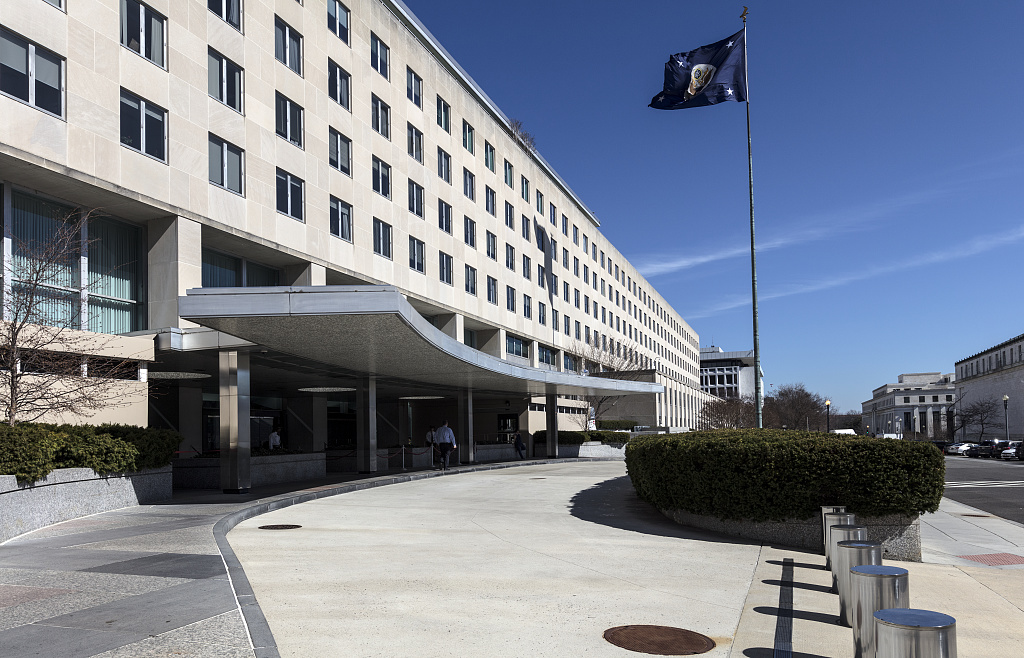
The Telum Treaty HeadquartersThe Commonwealth of Leagio has officially joined the Treaty of Telum, after having deposited the instruments of accession in the Telum Treaty Headquarters. With Leagio, the total members of the alliance goes up to six, joining the Duxburian Union, North Diessen, Inimicus, Inquista and Spain; and the alliance wins yet another ally in the African continent, which will cover the southern flank and guarantee protection and peace for African nations.
The Commonwealth of Leagio ratified the Treaty back in September 2023, after months of consideration by their National Congress. Nevertheless, the nation neighbouring Elthize has gone through a long way before becoming, effectively, a member of the Alliance. It all started in 2022, when President Mouri-Kudo stated that the Treaty of Tullion would not be renewed for two more years, putting an end to the defensive alliance that Leagio and Reitzmag had established. Shortly before 2022 ended, the Kingdom of Spain took over Reitzmag's bases and duties, and continued the task that originally the Commonwealth of Leagio gave to the Reitzmic military.
However, President Mouri-Kudo's ambitions did not cease there: she wanted her nation to join the Treaty, and so she looked for a deal between the diverse political forces of the nation to achieve that. Finally, she saw her ambitions fulfilled when the National Congress ratified the Treaty of Telum, and her Foreign Affairs Minister deposited in the Treaty's Headquarters the instruments of accession, marking the start of a new era in the Leagioan defense policy. Sources from the Spanish Ministry of Foreign Affairs have congratulated the alliance and its members for the accession of the newest member, stating that "it is clear that only one alliance in Europe guarantees peace, stability and reliability, and that is the Telum Treaty". The Leagioan flag has also been rose in the Joint Operations Base in Rota, Cádiz; and in the Treaty of Telum Headquarters.
-

THE GOVERNMENT CALLS EUROPEAN ELECTION BETWEEN 6 JUNE AND 9 JUNE
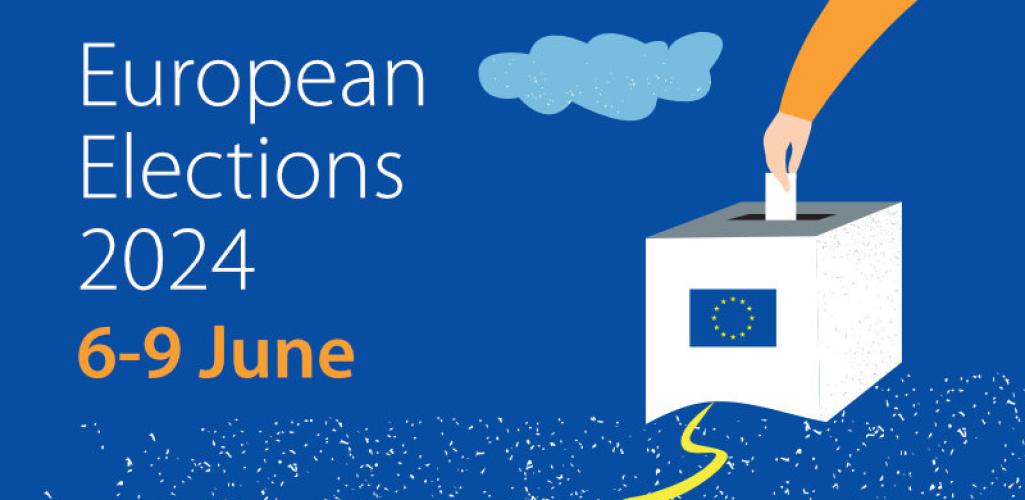
The Spanish citizens will head to the polls between Thursday and Sunday to elect their Councillor for the next five yearsNothing was clear about holding European elections, with nothing meaning nothing in this case, but the puzzle has been solved: Spain will head to the polls between 6 June and 9 June to elect (or re-elect) their European Councillor. President Alberto Núñez Feijóo has announced his decision this morning, after being inquired by the press, and has already confirmed the People's Party candidate and Eurogroup affiliation: «the Speaker of the European Council, Donald Tusk, will be our candidate; and he will run under the affiliation of the Eurgroup he leads, the European Progressive Alliance».
The reasons behind the call to the polls are still unknown, but some political advisors consider that Feijóo wants a victory that reaffirms him as the President of the nation, months after being elected by the Congreso de los Diputados after Juncker's resignation. He has not, just like his predecessor, been elected by the Spanish people, who elected Jesús Aguilar nearly two years ago. «Feijóo has had a victory in Galicia thanks to the majority his sucessor, Alfonso Rueda, has achieved; but he needs an election that ratifies his leadership in the entire nation, not in a single region. The question is: will he succeed, or will he make Tusk lose his job and the Speakership that he and Spain hold?», comments Europa Press' political analyst.
Albeit is the move worth the risk? Europa Press has tried to contact the current Speaker and Councillor for the Kingdom of Spain, Donald Tusk, unsuccessfully; but it has managed to speak to one of his advisers. Being asked the very same question, his adviser told us Mr. Tusk "does not fear the will of the people" and that he (the Speaker) and his team were convinced "they would win by a landslide". The opposition, on the other hand, have welcomed the election but criticised Feijóo swerves in his opinion, confusing them and not allowing opposition parties to prepare, putting the bloc in what they call "an unfair position".
-

IFNI BECOMES AN AUTONOMOUS CITY

The town of Sidi Ifni, the major city in the new autonomous city's domains«The region of Ifni has awaited this moment for over 45 years, and today, we can finally say: mission accomplished». Those were the first words of the President of the newly created Autonomous City of Ifni, Mbarka Bouaida, in her inaugural speech as the new President-Mayor of Ifni. After some administrative rework that has led to the integration of three municipalities into Sidi Ifni -turning into civil administrations with certain level of autonomy-, the citizens from this little Spanish territory are no longer third-class citizens.
The signature act of the long-awaited Chart of Autonomy for the city has been presided by King Felipe VI, who has had the company of the First Vicepresident of the Government, Roberta Metsola; the Secretary-General of the Spanish Commonwealth, Patricia Scotland; and the local authorities of the region, with the previously mentioned Mbarka Bouaida, the President-Mayor, outstanding over the rest. The King has made special emphasis in the values of the Kingdom, featured in the Spanish Constitution: «if our Constitution has taught us anything during its nearly forty six years of existence, those are the values of this nation. One of them, as all of you know, is equality between us all. With this milestone, with Ifni gaining the status of Autonomous City, we are one step closer to equaliy between Spaniards. That shall be our main priority when it comes to our territorial administration».
The region voted on its status on February 25th, when a referendum was set in order to let the people speak through the polls about the future of its home town. With a record-setting participation of 85%, a ninety per cent (90%) of voters supported the draft of the Chart of Autonomy, leaving 45 years of being an International Protectorate behind. Nonetheless, even if Ifni is now an Autonomous City, it will remain to be a member of the Spanish Commonwealth. During the signature act, the Secretary-General of the Spanish Commonwealth made the following statement: «The Commonwealth was born with two main objectives: first, the better representation of the territories far from the mainland, including and giving them an extra and more powerful voice than the one they have when divided; and second, the pursue of the territories' autonomy status. With this step, the Commonwealh has proven it is an useful and important institution for the present and the future of hundreds of thousands of Spaniards that live far away from the Iberian Peninsula. With Ifni's presence in our Commonwealth, we obviously gain relevance, but we also have the tools we deserve to provide our people a better future».
Roberta Metsola has also been present in the signature act, underlining the compromise of the Spanish Government with the drafts of the many Charts of Autonomy that, up to date, are still pending ratification or must be started. The Vicepresident has stated the Executive Power is "fully commited" with these territories, clarifying they would not leave anyone behind: «since this term began, territorial integration has been a priority for this cabinet, and it will remain to be for the coming years. We are not leaving anyone behind».
-

SPECIAL REPORT - NOFOAGA, FOUR YEARS AFTER
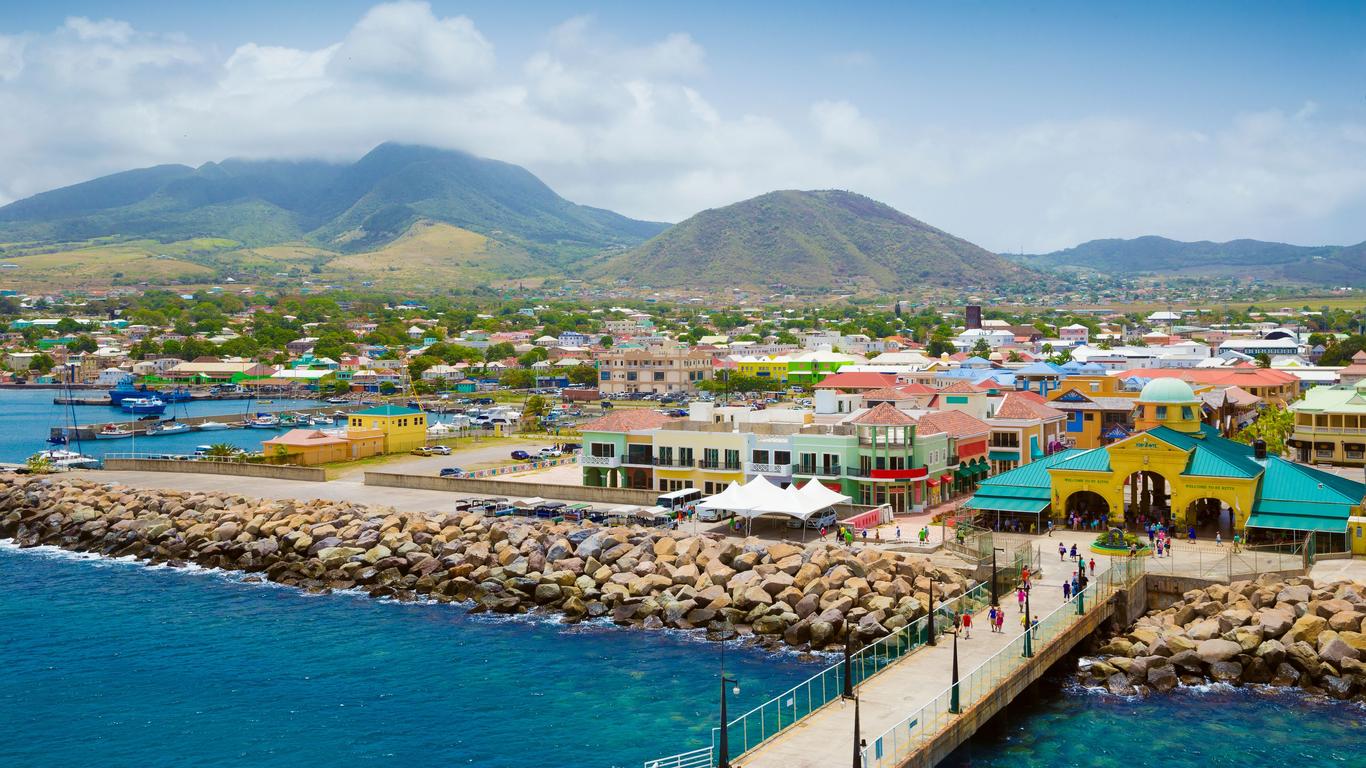
The capital city of Nofoaga, Port Beauharnais, on a stock pictureIt has been four years since the former President of the Kingdom of Spain, Jesús Aguilar and the former President of the Republic Nofoaga, Jacques Salé, signed an agreement allowing Spain to deploy its military forces into the territory of the Caribbean republic, in order to take care of defending the island in case someone ever dared or planned to attack it. Since those signatures were put into paper, the island has seen everything that is possible in this world, including a volcanic eruption that forced the Nofoagan Government and the Spanish Military to rebuild the island from the very beginning.
Sometimes forgotten by many, other concieve Nofoaga as a remote land. The Caribbean nation, with over 10,000 inhabitants, neighbours another close ally of Spain: Sertia. These two nations make up the Caribbean Community, born in 2021, which has fostered integration of both nations; including the introduction of a common currency. The Nofoagans and the Sertians also share the presence of the Spanish military, where the Government has funded two spaceport projects, with the Spanish Mission to the Moon departing from the Sertian-based spaceport with 2 Spanish astronauts, alongside a Nofoagan and a Sertian.
However, going back to Nofoaga, El País has sent a team of journalists to visit the island and see how it looks like three years after the volcanic eruption, and four years after the Spanish Army arrived. Several Alliance Days (which celebrate the presence of Spanish soldiers in the island, marked on September 14th) and Presidents (Lula Namatatiki or Romain Guichard, to give some examples) have passed, but how has the island evolved? How have our soldiers adapted? We arrive at Royaume-de-France International Airports, with the hope of having our questions answered when we take the plane back home.
Spain and the Island

Marian Fonseca, the Spanish member of the Nofoagan National AssemblyThe relationship between both nations could not be better. Since the arrival of the Spanish military, the Kingdom of Spain and the Republic of Nofoaga have hold several summits to discuss their cooperation, always ending up in an expansion of it. Not binded to an agreement, but openly welcomed by the Spanish Government back then, Nofoagan President Lula Namatatiki decided to give a seat in the National Assembly of the country to the Spanish minority. This task to represent soldiers and Spaniards living in the island was given by voters to Marian Fonseca, who lives and works in Nofoaga and has done it for quite a few years.
El País arranged an interview with her, and she welcomed us in her office. Asked about her job, she confessed she found it "thrilling": «You never expect to be the representative of your brothers and sisters that, like you, share the same roots and origins. When I was elected, running as an independent candidate against two other independent candidates, I could not believe that they had put their trust on me. Certainly, it is a thrilling job, and I am pretty much devoted to it». Nevertheless, Marian is not only devoted to her parliamentary job: «I still work for the company I have worked for since I arrived, because I love my job; as I am highly devoted to my family». Fonseca was also asked by our team about her expectations for the island's future: «Nofoaga has a bright future ahead thanks to the management of President Namatatiki, and the help of the Spanish military to rebuild the island. Reconstruction might have not finished yet, but it is our job as Spaniards to help a friendly and allied nation like the Republic of Nofoaga».
Back in the early years of the Spanish deployment, some voices raised their concerns about our country's possible annexation of Nofoaga. While Spain already has territories in the Caribbean, leased by the Republic Nofoaga (we will get to that later), we asked Fonseca if she believed those voices had reasons to be concerned: «Absolutely not. Spain will not annexate Nofoaga, and if Nofoaga and Spain ever united or wanted to deepen their ties, I am pretty much sure that we would enter the Spanish Commonwealth and keep functioning as an independent identity, cooperating with the CCCC and led by Lula Namatatiki. Those voices can chill in a Nofoagan beach, with our very famous turtles walking next to them -it helps you to relax- and having a Piña Colada, because Spain will never annex this island». Before we left, Marian handed us a signed letter from the President of the Republic, who also happens to be the Chief of the Spanish Troops deployed on the island; in which she regretted not being able to welcome us due to her tight agenda while wishing us a happy stay. So kind of her.
The Spanish Military

General Carlos Brown, Spanish Commander for the Caribbean and the Pacific and Chief of the Spanish Military Bases in NofoagaAfter our rendez-vous with Marian Fonseca in Port Beauharnais, we go to the west of the island, to the Tuagavale Military Base, where Romain Guichard, King Juan Carlos and other significant personalities spent the days of confinement while the air of the island remained toxic after the volcanic eruption. There, General Carlos Brown greets us, and shows us the base and the bunkers where people spent their days. He tells us that "visits are made to the bunkers twice a year" and that he "no longer likes to come down here", as the memories of those weeks show through. After the visit is over, we get into a helicopter that takes us to the Bourbon Military Base. Both bases are Spanish and Nofoagan territory, and subject to the laws passed in Madrid.
General Carlos Brown's life has changed during the last four years, or in other words, since he arrived in Nofoaga. General Brown went from being a simple General, to becoming one of the most trusted generals of the Spanish Government. During his stay in the Caribbean, Brown has been awarded with the titles of Commander for the Caribbean and the Pacific, Chief of the Spanish Military Bases in Nofoaga, Chief of the Spanish Military Administration of the Military Bases in Nofoaga, a member of the Spanish Commonwealth and the Captain in Chief of the Global Commander Programme, that he always aimed for since Spain began its international bases programme.
Before the planned visit to the Space Center, we interview General Brown, asking him about his new life: «I cannot complain, and I am thankful to God for everything he has given to me. When I look back at the day they assigned me this mission, I can see myself being reluctant about coming here. But I have always, during my years of service, put Spain and its interests over my feelings, so I accepted the mission and came here. Today, I am honoured to say that it is the best decision I ever made». Brown is also in charge of the deployment in Sertia, where Spain also has a military base and where it is responsible of defence too. Asked about the role he plays in the international relations between the Caribbean nations and Spain, Brown says he is "another ambassador": «I am lucky to be able to represent my nation here, and I act as a bridge between Madrid and the Caribbean nations as a whole. If they need something that is within my competences, they reach out and I send the information to the Spanish Government, and we give them an answer. The diplomatic body in Nofoaga and Sertia and I make a great team, we cooperate and we give our best every day».
Asked about the most political role he has, General Brown says that he finds himself comfortable on it: «Being the Chief of the Spanish Military Administration is a huge responsibility, just like the many other roles I have been assigned. Despite being a political role, I find myself comfortable on it. Commander Potter and I, as the most political military authorities, have helped each other a lot, and we are in permanent contact. I must confess we acted very military-alike in our first Commonwealth summit, and when the Secretary-General told us at the end of the meeting, we could not avoid to laugh -What did you answer?- We replied saying that we were soldiers and that we had been taught to speak that way, then the three of us laughed together». The question about the Spanish Commonwealth came up next: «Ms. Scotland and the Spanish Commonwealth give us a lot of support and are always there if we need anything. The organization was born with the purpose of achieving better coordination skills and also to help the territories far away from the mainland, and it does that amazingly well».
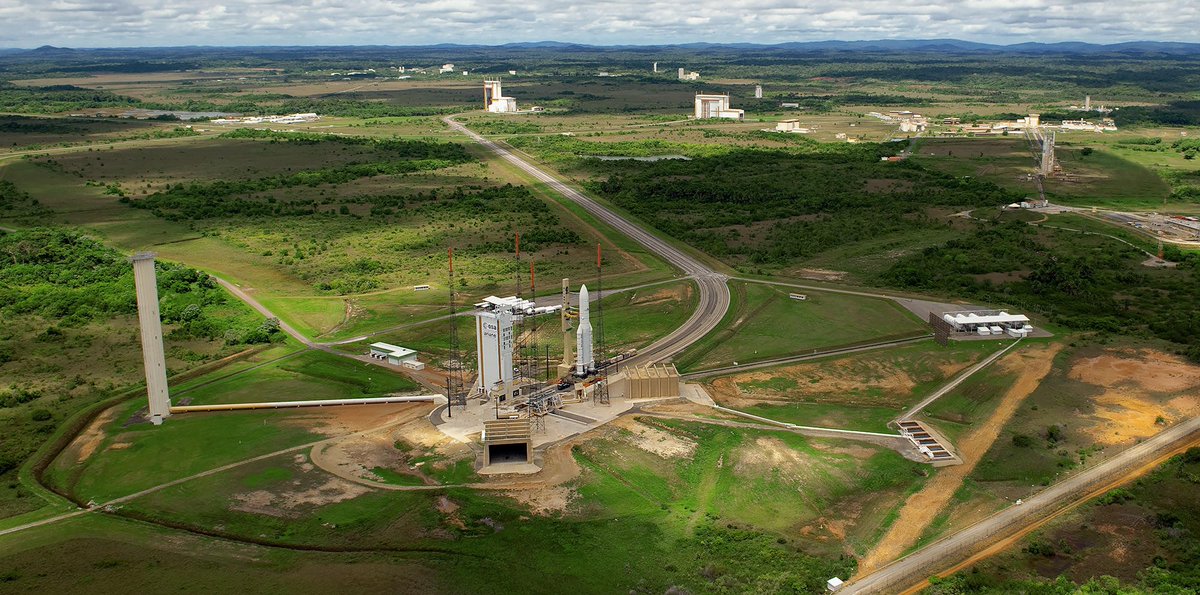
The Fort d'Espagne Space Center, located within the Bourbon Military BaseAfter our interview with General Brown, he takes us to the Fort d'Espagne Space Center, the "veteran" spaceport of the Kingdom of Spain. Even if the first workers of the Spanish Mission to the Moon, to take place in January 2025, expected that the rocket would lift up from here; the truth is that the rocket launch will take place in the neighbouring Space Center located in Sertia. Due to the preparations for the Mission, there was not many personnel from the Agencia Espacial Española (Spanish Space Agency) around at the time of our visit, so General Brown stepped in as our guide.
After saying goodbye, we explored the island, rich in natural diversity and with a different culture. We had lunch in Fort d'Espagne, named after the military base established a few kilometres away, and then visited the deep forests of the island, that are slowly but gently growing back as the island is being rebuilt. We decided to put an end to our report as close as possible to the Mauga'fi volcano, that made the island blow up in 2021. There, we were able to observe how impressive it is, and we remained silent, looking around and remembering those who lost their lives nearly three years ago. As a Hispano-Nofoagan soldier that we were able to talk about told us during our visit to Tuagavale Military Base: «Nofoaga does not forget, and the Spanish Army does not either. Everyone remembers. Having this in our minds is how we rebuild the island, and it will always be like that. Our duty here is to protect, help and save lives. Those are our main objectives». With those words in mind, alongisde the radio playing 'All of Me' by John Legend, we left the place heading back to where we started, Royaume-de-France International Airport, hoping that we could come back soon to keep enjoying the island.
Notes from the Newspaper
- Authors: Karelia Vázquez, Álex Serrano, Andrea Aguilar and Jacobo Rivero
Dedicated to the memory of the victims of the Mauga'fi volcano
-

Opinion Piece - A Renewed (International) Leadership
By Juan R. Gil

Former Prime Ministers Jesús Aguilar (L) and Jean-Claude Juncker (R)There are no references abroad (with permission from the Inquistan Archbishop and the Czech President for Life), no influential leaders, nothing. If we conducted a poll in the national territory of our closest allies (Inquista, Inimicus, Leagio, Nofoaga, Sertia, the Duxburian Union or North Diessen) or nations like Elthize or Istkalen, whose relationships with the Kingdom of Spain are close; I can assure you that not even a 35% of the polled population would be able to give us the name of the President of the Spanish Government (for those reading abroad and wanting to know the name, it's Alberto Núñez Feijóo). Considering the hypothesis seems trustworthy, it is time to raise up some questions about the leadership of Juncker's substitute: is he willing to take the same role his predecessors took while in office? Is he going to let the Spanish international influence die? Even it might be worth to inquire whether if he is the leader our country needs at a time of continental silence.
Since his arrival in Moncloa, the Government has released four statements, a decline considering the trend that the Aguilar and Juncker Governments had set. He has only held a single summit, with Mishar; and another low-level summit (Ministerial level) was held between the Foreign Affairs Ministers of Spain (Esteban González Pons) and California; what contrasts the foreign policy guidelines followed by the Aguilar-Dastis tandem. Since the departure of the former ambassador from the Ministry for Foreign Affairs, European Union and Cooperation, and the arrival of González Pons, the Spanish Diplomacy presents a paralysis status from which it seems to be unable to recover. Maybe dismissing him and having Dastis take the office back, or maybe a new face that is brave enough to catch the attention of other European nations may be enough, but what if this is a Feijóo problem?
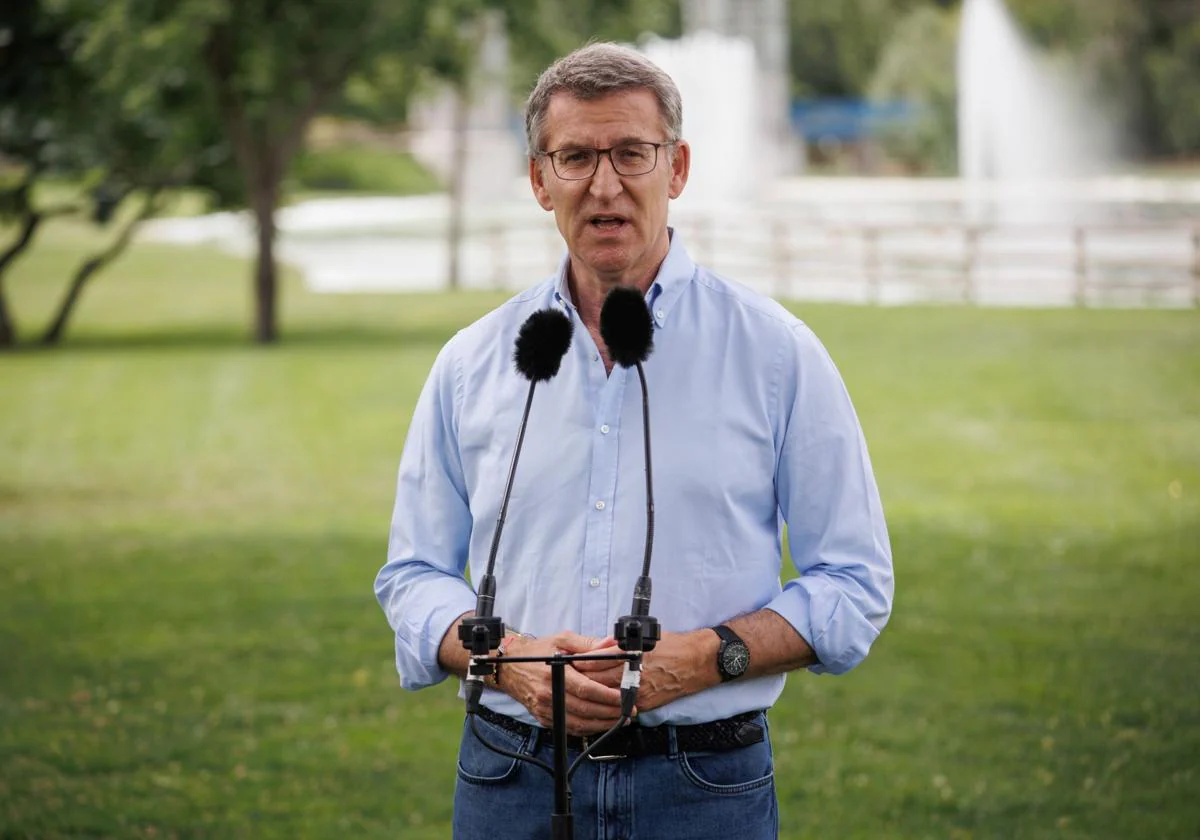
President Alberto Núñez Feijóo, in a recently held party act in MadridIf it is a Feijóo (and Pons) problem, then he ought to start considering his resignation. Yet, if he resigned, an election would not be called; but rather a new People's Party leader would be elected and then sworn in as Prime Minister, specially after the likely massive defeat that the People's Party will suffer today in Londres against the Partido Socialista and their candidate, Wes Streeting; after the 14 year long Conservative government has failed to achieve a draft for the region's Chart of Autonomy, alongside financial complaints. Some voices within the People's Party say that former President Jesús Aguilar, who is known to have a good relationship with Feijóo, might have blamed this projected defeat on him and his predecessor, Jean-Claude Juncker, as Sunak "was not fit for anything". While regional experts say the analysis is correct, they also blame the defeat on Aguilar, with huge mistakes like Liz Truss' ministerial appointment or not listening to the historical demands that Londoners have made during the last years.
Alberto, if you are not going to change anything, resign. After you resign, if you are not ready to call an election, choose an unknown guy, somebody that no one has heard about before. And if you call an election, pray. Because after this huge defeat, and your Government's inaction, I wonder how you would be able to justify that you are the perfect leader to run for re-election. And concerning the international side, be brave. Take some risks. Be strong against the Horsemen of the Apocalypse. But do not let our country fall into irrelevance, or else, your political career will fall into it behind. Let's make Spain move forward.
-

MORDAUNT: "WE NEED TO FIGHT AGAINST MANIPULATION"

The Minister of Defence, in the Times' office in LondresSome say the Ministry she leads should not exist. Others affirm it is one of the most relevant positions that a politician can get when he becomes a member of the Government. For Penny Mordaunt (Torquay, 4th March 1973), Minister of Defence, the position she has the "huge honour" to hold is the "backbone" of the Spanish Kingdom. Certainly, different views arise when speaking about the Army and its branches, yet Spaniards highly trust it: a 80.8% of them have a positive opinion about the Armed Forces, while a 74% feel safe knowing that the Spanish Armed Forces are always available to defend the nation. With this in mind, The Times has interviewed Minister Mordaunt in Londres:
J: Minister, thank you very much for accepting our invitation for an interview in Londres, the capital of your autonomous community. How are you feeling about coming back home?
PM: Thanks to you for believing I am an interesting guest. Concerning your question, it always feels amazing when you come back home, and now that summer holidays for us, politicians, are getting closer, it is nice to come back, visit your family and friends at home; as well as trying to emulate the life you had before turning into a politician.
J: Spain has many military bases around the European Union, some of them known by everyone, like the ones based in the Caribbean; and others fully unknown to many, like the Spanish bases in Ineland or Mishar. Now that President Feijóo seems to be reluctant about having a strong international leadership, will these bases be closed? Could soldiers come back home soon?
PM: Absolutely not. Spain is not closing its bases unless the nations that host those bases told us to leave; and we cannot discard the addition of more bases to the list. One of the compromises that we adquired when we joined the European Union was maintaining peace, something that we keep doing today. Those bases are needed if we want to have a strong international leadership, but also to preserve the European Union's current status and also to ease Spanish deployments all around the World.
J: The bases are clearly tied to the Global Commanders Programme, which has divided the region in several areas of action that have a Commander in charge. Could any change happen soon? Is General Laura Potter continuing in charge of leading Commanders?
PM: I trust Ms. Potter, and I trust every single Commander. The Global Commanders Programme is not being changed because it works. Thanks to the programme, we are able to have better information about what is happening on the ground, to communicate with foreign governments of the nations where we have bases at, and to coordinate any action that has to be done in order to protect our national security, the national security of our allies or regional security. Spain, unlike others, is a nation that is known for its commitment to stability.
J: Those others are...
PM: Experts in manipulating, creating fake news and setting up a completely different story about something. Spain needs to fight against manipulation, and so does the reasonable world. We also need to combat fake news, false stories, and it can only be done with unity and determination. Our neighbour, for example, says we are a hostile nation; the truth is that they have supported the invasion and mass killing of thousands in Svarna Surya despite being pacifists. Other members of the alliance that these guys belong to say they want Europe to be peaceful, but have declared war recently, and now they want to get nuclear warheads, which is alarming to their neighbours; or threaten stability by using their Public Broadcaster to headline what was supposed to be a "simple joint training exercise" as a "diplomatic bombing". We cannot allow these guys to trick Europeans and Spanish people, and Spain will fight against manipulation and fakes.
J: On the other hand, the Treaty of Telum has gained a new member and has never been involved in conflict...
PM: And those guys that, again, declared war on a sovereign nation due to disagreements over their system; say that the Treaty of Telum is a threat to regional stability. They are big hypocrites, no more words are needed to descibe them. The Treaty members have indeed grown after the entrance of Leagio into the alliance, and this proves our commitment with peace. Our alliance is the strongest, the most reliable and the most careful of all, because we do not get involved into silly conflicts, we do not go around the world provoking others. We are peaceful nations, helping each other, exploring new ways to cooperate together; and being there for each other in case of attack. The Spanish Army has learnt a lot from its allies, and I believe they have learnt a lot from us too. Every nation offers different conditions for training and works differently, so learning to coordinate between our Armed Forces was the big challenge. Nowadays, that challenge has been transformed into learning how to be more optimal.
J: One last question, Minister Mordaunt: The Royal Family recently announced a trip to the Kingdom of Reitzmag. Some sources even claim that President Feijóo could be interested in travelling to the United Duchies in order to improve the existing relationship between both nations, that has gone through high degradation recently under past leaderships. How can the will to improve those relationships be compatible with highlighting their so-called "irresponsabilities"?
PM: Everyone makes mistakes, and I am pretty sure both parties are willing to amend their mistakes and move forward. Others are just antisocial at all, and you know who I mean. However, it is important to say that being friendly towards nations that are not your allies does not mean you have to support them in all the endeavours they take. Same thing happens here: if we see anything that, to our view, is bad or threatens our national security, the one of our allies or regional stability, we will report it. Yet, Foreign Policy is a Presidential affair, and I will support whatever the President believes is better for Spain and our citizens.
J: Minister Mordaunt, thank you very much.
PM: Thanks to you and to the team that makes up The Times.
-

BREAKING - PUIGDEMONT, ARRESTED
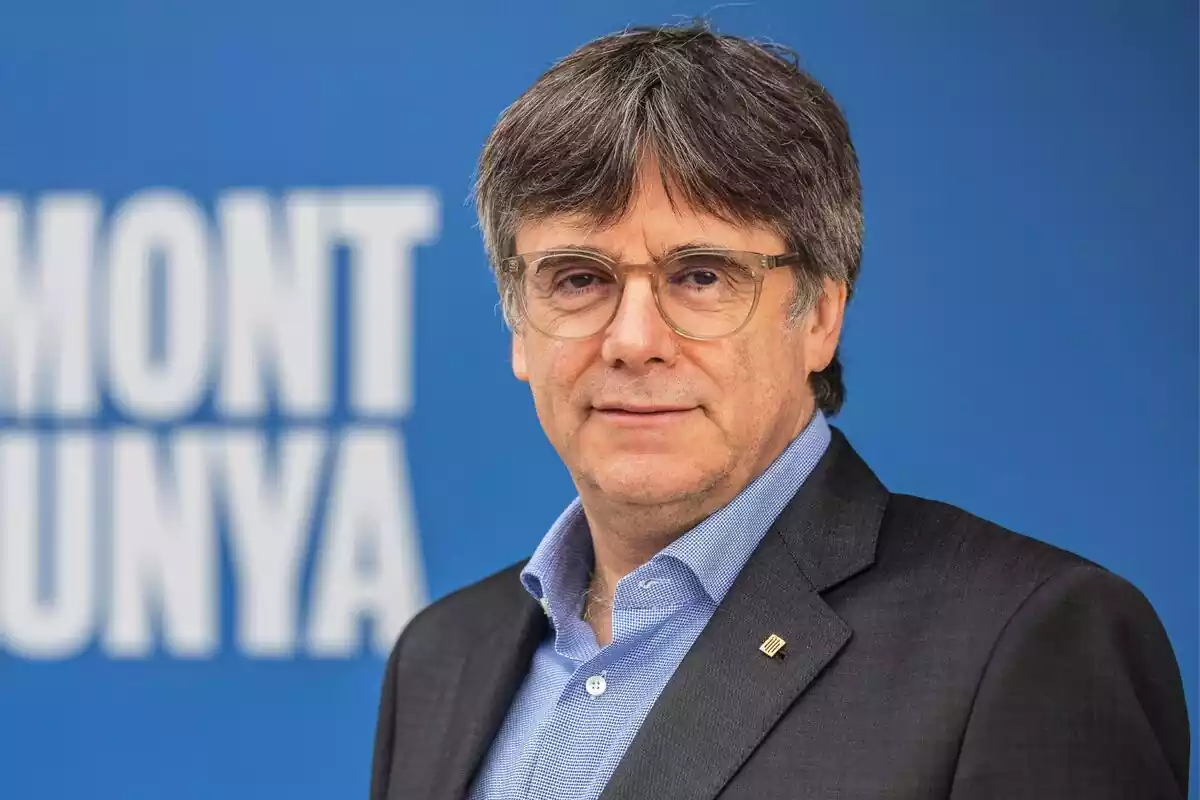
Puigdemont had been 'in exile' since 2017, from where he campaigned in the last Catalan ElectionAccording to sources from the Mossos d'Escuadra, former President of Catalonia and one of the individuals responsible of the 2017 illegal Independence Referendum, has been arrested today after he crossed the border from the Republic of California to Catalonia. The car in which he travelled was intercepted by a unit of the Catalan police, as cameras from the autonomical television, TV3, were transmiting live his arrival into Spanish land after his runaway in 2017. The cameras have also recorded his arrest, which has not been violent and to which he has put no opposition. Puigdemont is now in Barcelona, where he awaits to be transfered to Madrid, where he will have to appear in court.
Carles Puigdemont is the leader of the conservative pro-independence party Junts per Catalunya, and ran for the Catalan Presidency in the last election, which took place on May 12th. However, despite getting 35 seats, he lost the election to the PSOE's candidate, Salvador Illa, who is still negotiating with leftist secessionist party Esquerra Republicana and Comuns-Sumar to form a left-wing Government. Puigdemont had, on the other hand, called for unity between pro-independence forces, and his comeback may be a strategy to force the collapse of negotiations between the PSOE and Esquerra, in an attempt to force a new election and try to win it. His arrest does not mean, however, that he cannot attend parliamentary sessions or become President -he is still able to do that until a sentence is pronounced-, which reinforces the previously exposed theory.
Through a statement, other Catalan politicians in jail have already condemned his arrest, affirming that Spain is "a fascist state". Several protestors are gathering in Barcelona, where civil unrest could take place. The arrest of the Catalan leader comes in the poorest moment for Catalan secessionism, with just a 40% of the Catalan population supporting to leave Spain, and a 53% rejecting it. Puigdemont now faces charges of rebellion, sedition and misuse of public funds, from which he will have to defend himself in the Supreme Court. Secessionist parties have called for peaceful demonstrations in the streets, while the radical far-left party Candidatura d'Unitat Popular and the far-right party Aliança Catalana have urged their supporters to "take the streets". Major national parties have still not reacted to Puigdemont's arrest.
PRESIDENT FEIJÓO: "THE RULE OF LAW HAS PREVAILED"
:format(jpg)/f.elconfidencial.com%2Foriginal%2Fadb%2Fd3d%2Fd24%2Fadbd3dd2437ab7cc37aa9e8ca0497e71.jpg)
President Alberto Núñez Feijóo, in this morning's Press Conference"The Spanish rule of law has prevailed". With those words, the President of the Spanish Government has summed up what the arrest of Carles Puigdemont signifies for the nation. Feijóo has congratulated his Government efforts to keep the borders safe and thanked the Catalan police, the Mossos d'Escuadra, for their loyalty to the Spanish rule of law. While the President has not made his thoughts about what Puigdemont can expect from Monday in his judicial battle (he will appear in the Supreme Court on Monday), it is likely for him to be judged by the Tribunal Superior de Justicia de Catalunya, as he is a member of the Catalan Parliament.
«The capture of Carles Puigdemont puts an end to seven years of escapism and rebellion, as to the whole Catalan Independence plot, known as the Procès. It died in the last autonomical election, in which the pro-independence parties did not have a majority for the first time in decades, and we bury it today. Everyone has to pay for their actions, and Puigdemont is not an exception», President Feijóo has stated this morning. VOX has also celebrated Puigdemont's arrest, calling him a "traitor". On the other hand, left-wing parties have not shown any happiness about the escapee's arrest, with Sumar leader Yolanda Díaz saying that "political revenge through the judiciary power is illegal" and that "Puigdemont shall receive guarantees of a free and impartial trial"; while a spokesperson of the PSOE has stated the party supports "a new era for Catalonia" in which the politicians that were responsible of the referendum are "forgiven".
Meanwhile, in Barcelona, a pro-independence demonstration has begun at 12:00, calling for Puigdemont's immediate release, alongisde the other "political prisoners". The Catalan Police has encouraged tourists to stay away from the demonstration, as it could turn violent. The precedent of these kind of demonstrations after controversial happenings like this have always ended up in civil unrest by the extremist side of the pro-independence movement.
-

NEW DIGITAL NOMAD VISA TO ENTER IN PLACE ON AUGUST 1ST
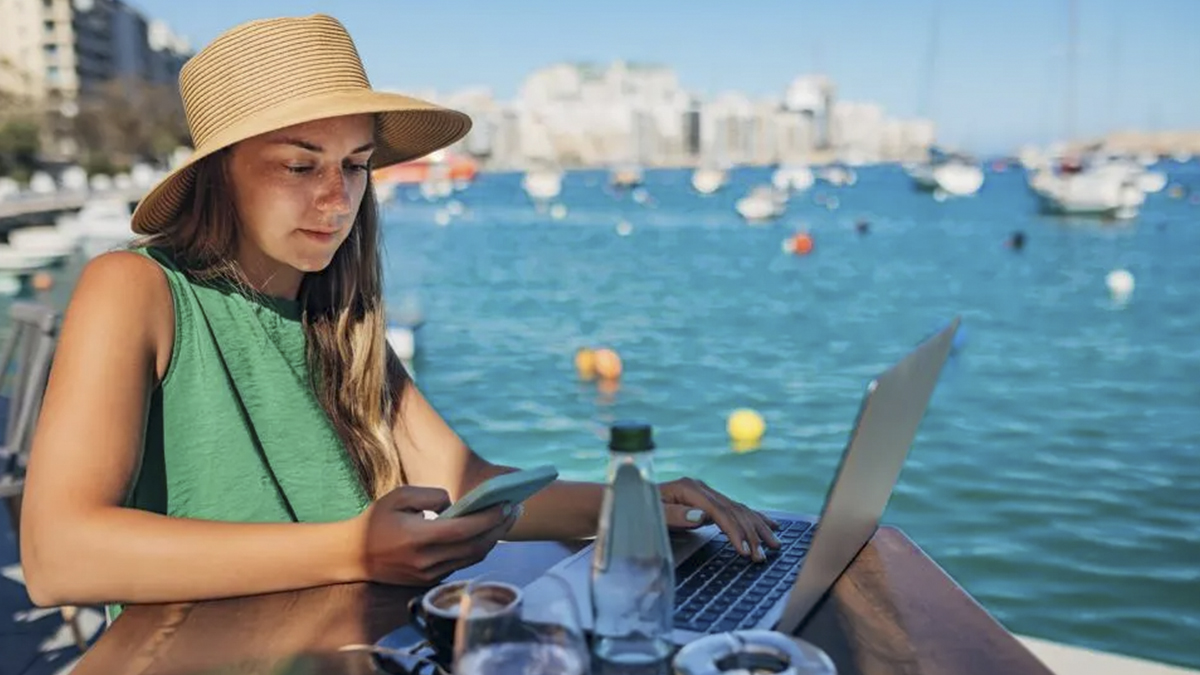
A digital nomad, in the Canary IslandsThe Spanish Government has announced the creation of a new type of visa for digital nomads, which will allow freelancers and remote workers from nations with no free movement agreements with Spain to live and work in the country for up to five years, starting August 1st, using exclusively computer telematics and telecommunication media and systems; making it the first country of the European Union to have these types of visas available. According to Minister of Industry, Trade, Tourism and Energy, Thierry Breton; the introduction of this new type of visa will make Spain one of the "most attractive destinations" for nomads.
To apply for this type of visa, interested individuals shall submit their application at their nearest Spanish embassy or consulate. The first step to be able to request this visa is showing that the work you do can be done remotely and working for a company that has been in business for at least one year. When it comes to self-employed citizens willing to become digital nomads in Spain, they have to show that you are well-established and have a steady stream of clients. In addition, they can work with Spain-based companies as long as it doesn't make up more than 20% of your overall workload. The Spanish Government has set other requirements for these nomads, such as holding a bachelor's or master's degree from a legitimate university, college, or business school, or have at least three years of relevant work experience in their current professional field; being financially stable (with an income of 2,280€ per month or 30,840€ per year) and having a clean criminal record. The application fee is 80€ and if they are approved, nomads will have to apply for their NIF and NIE. Taxation for these nomads is also attractive: these non-residents will be subject to a 24% tax rate, applicable up to 600,000€ per year, with any earning above this amount being taxed at a 48%.
Many regions are already expecting a growth in their foreign residents stats, specially the well-known Spanish tourist hotspots, like Andalucía, the Canary Islands, the Balearic Islands; or some quieter places, like the Spanish Micronesia, Puerto Rico or the islands that belong to Portugalia. In San Juan (Puerto Rico), citizens are not concerned about the arrival of these wealthy workers: «if their arrival contributes to the well-being of our island, and to tackle down housing prices while improving our public services, we will welcome them with open hands», said Juliana, a 30-year old woman with a child. In the Spanish Micronesia, where space is severely limited, the hotels are expected to receive the bigger influx of digital nomads: «we are eager to see if this new visas bring some more dynamism to the local economy, while having higher incomes», says Asou, the owner of a little hostel in the main island of the region.
-

BREAKING - MÁLAGA TO HOST EUROVOICE 46
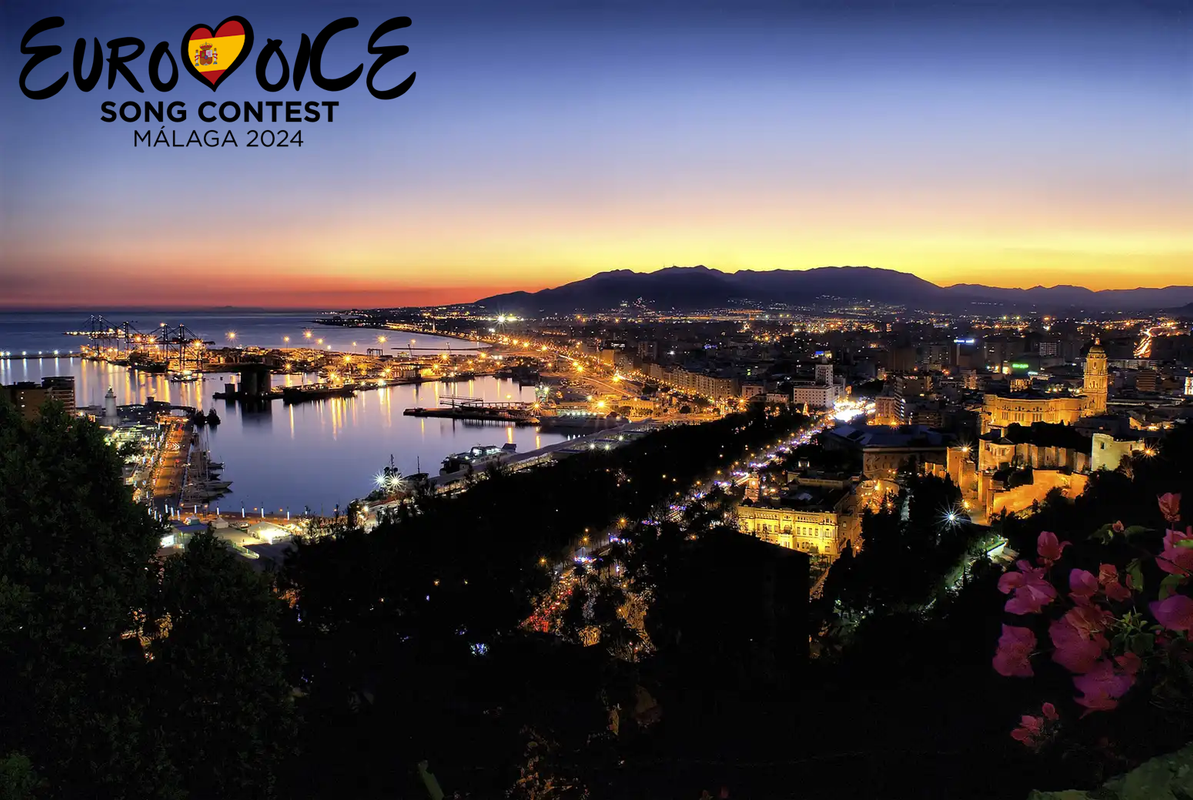
The Andalusian city will host this 'Christmasy' editionThe mystery has been solved. Málaga, located in Andalucía, will host the 46th edition of the EuroVoice Song Contest, after the decision of the European Union Broadcasting Corporation of removing Ineland from hosting and holding the contest, due to inactivity on the preparations that the competition requires. Radio Televisión Española was the selected broadcaster after an internal discussion, with the offer being presented solely to the nation that had been selected by the EUBC, following some strict requirements.
Despite not being one of the typical winter cities -the closest snow resort is 140km away from Málaga, in Sierra Nevada (Granada)-, Málaga has been selected as the host city for its very well known Christmas atmosphere, congregating around 1,200,000 visitors during Christmas. The lights installed around the city, especially those located in the central Calle Larios, atract loads of people from around Spain and Europe, searching not only for good weather, but also for an atmosphere hardly found anywhere else. According to the Mayor of Málaga, Francisco de la Torre, visiting Málaga in Christmas is "a unique experience nobody should miss".
The Palacio de los Deportes Martín Carpena, located in the outskirts of the city, and well-connected with the city centre through buses and underground, has been the elected facility. The venue has a capacity of 11,000 people, and currently serves as the home stadium of the local basketball team, Unicaja de Málaga. During past years, the Martín Carpena has held many prestigious events, including the tennis Davis Cup, which came to an end last weekend.
-

THE PALACIO DE LOS DEPORTES MARTÍN CARPENA, READY FOR EUROVOICE 46

The stage for the 46th Edition of the EuroVoice Song Contest is readyRadio Televisión Española has released the first pictures of the 46th Edition of the EuroVoice Song Contest this afternoon alongisde the European Union Broadcasting Corporation. The Palacio de los Deportes Martín Carpena is now a step closer to hosting the song contest, that will take place in Málaga between the 26th and 30th of December. According to sources of the public broadcaster, seven contestants have already confirmed their presence in Málaga, where everything is getting ready and hotels are close to being fully booked for those dates.
The stage has been designed by a stage design studio from Granada, with the aim of reflecting Málaga's essence into the stage, with a Christmas touch. Aurora Domínguez has been in charge of supervising the construction of the stage in the Martín Carpena, and has explained to us why the design has been so important for her studio: «We wanted to make the Palacio de los Deportes look Christmasy, but also to show Europe what Málaga and Andalucía are truly like. There will not be another chance like this for our region to advertise, and the whole thing starts with the stage, which is based on Málaga's Cathedral, moorish architechture in Andalucía and also our Catholic heritage, represented in the polar star over the stage».
María Eizgarre, the Communications Director of Radiotelevisión Española, has also been asked about the hosts and the interval acts that will take place in EuroVoice 46: «I cannot reveal any details yet, my friends, but I can assure you there will be a huge shock when their names are revealed. There are a lot of surprises incoming, and everything I can tell you is that the Martín Carpena will not be the only facility where EuroVoice will take place». Some Eurofans are still trying to decript this statement, with some guessing that the city will have a main role in the celebration of this 46th Edition.
-

BREAKING - LUIS MIGUEL AND KELLY CLARKSON NAMED AS HOSTS OF EV46; INTERVAL ACTS REVEALED

Kelly Clarkson and Luis Miguel will be the hosts of the 46th Edition of the EuroVoice Song ContestThere has been, indeed, a great shock, just like the RTVE Communications Director, María Eizgarre, predicted when making a statement about the hosts and the interval acts. Radiotelevisión Española has recently announced that the famous and globally-known Luis Miguel, and one of the faces of Christmas' soundtracks of the 21st Century, Kelly Clarkson; will share the stage of EuroVoice 46 and present the Grand Final, which will take place 26th and 30th of December. The announcement has taken place after voting for this edition of the contest has opened.
Both Clarkson and Luis Miguel have been interviewed by Radiotelevisión Española this morning, prior to the press conference that has taken place in the Palacio de los Deportes Martín Carpena. Luis Miguel has confessed this is the "biggest challenged he has faced" in his entire career: «many could say that singing in front of thousands prepares you for things like this, but the truth is they do not. In this case, millions will be watching, not only on the arena but also abroad; and Kelly and I both want to provide the best entertainment as possible. We have some surprises prepared and I think everyone will have a good time». Kelly Clarkson told the press something about the surprises: «All I can say is that we have a costume change and that something really funny will happen, and that we have to reherse a lot. We hope that nobody is spoiled by the indoor rehersal videos!»

Michael Bublé, Benson Boone, Pablo Alborán and Malmö 040 will be the artists performing in the interval actsConcerning the interval acts, four artists will take the stage of EuroVoice 46 and perform: Michael Bublé, Benson Boone, Pablo Alborán and Malmö 040. María Eizgarre has confirmed that only Boone's performance will take place on the Martín Carpena, while the others will perform from different sites around Málaga: «We want to show the atmosphere and the magic of Málaga during Christmas and how lovely the nights here are, and we have chosen three different places around the city to share it with the rest of Europe. Pablo's performance will be very special, that is all I can say right now».
In Málaga, people remain excited and some's excitement has grown after the announcement of the hosts and the interval acts. Julia Garrido has been an Eurofan for 10 years, since she was 15, and is a huge fan of Pablo Alborán. She has been able to get tickets for the special rehersal of Pablo Alborán in the secret spot where his performance will take place: «I am so excited that I will be able to watch Pablo Alborán rehersing live, but I do not know where the performance will happen yet! I am nervous, and I cannot wait for the contest to actually begin!»
-

BREAKING - SPAIN TO REMOVE UNITED DUCHIES FROM TRAVEL ADVISORIES LIST

The Minister for Foreign Affairs, European Union and Cooperation, Esteban González PonsIt was indeed time to bury the hatchet, or that might have been what the Spanish Government had thought when planning towards the new travel advisories list, to be released on January 2025. The United Duchies, included by the Ministry for Foreign Affairs, European Union and Cooperation on their travel advisories back in August, will now be fully removed from said group of nations and return to be considered a safe destination for Spanish travellers, according to sources close to the Ministry.
«It made no sense to have the United Duchies in that list», says Mateo Riopérez, an International Politics analyst: «The United Duchies and Spain started to differ when President Aguilar considered everyone not supporting his plans about the Adventuranza Sea as 'rivals' or 'enemies', and President Feijóo has started to reverse that, following Aguilar and Juncker's path with Reitzmag, with whom the relationship has improved massively. However, to make this change towards the United Duchies somewhat trustworthy, Pons will have to go; and I guess that the Government will change sooner or later, with the elections taking place in July 2026 at maximum».
The reshuffle of the Cabinet is a debate that has began to gain some force throughout December. According to some sources from Moncloa, President Feijóo would intend to make minor changes to the Government, with Transport and Foreign Affairs being the Ministries up to being changed. When it comes to Transports, Mariastella Gelmini would return to the Cabinet, as Abrines would have expressed his desires to leave. Yet, Foreign Affairs remains to be a headache for Feijóo, as he is not able to find a good replacement for Dastis: former Minister García-Margallo has rejected the position, as Speaker Tusk has. Dastis is not a choice over the table after his retirement, and Feijóo is yet unable to find a replacement for his most important Ministry.
 The Kingdom of Spain
The Kingdom of Spain